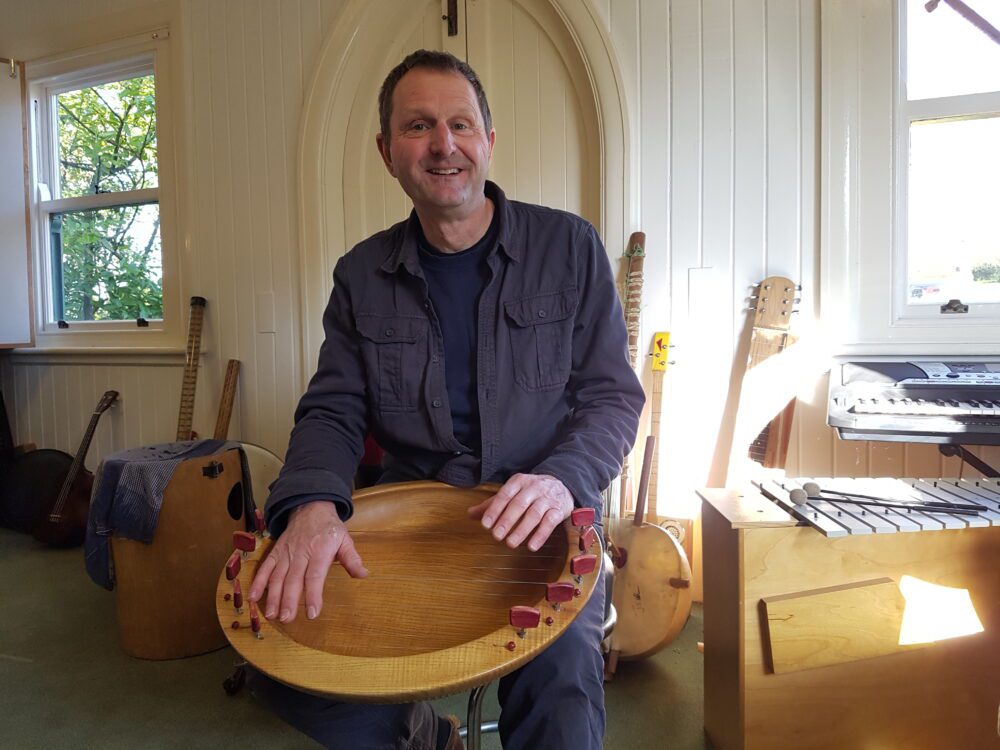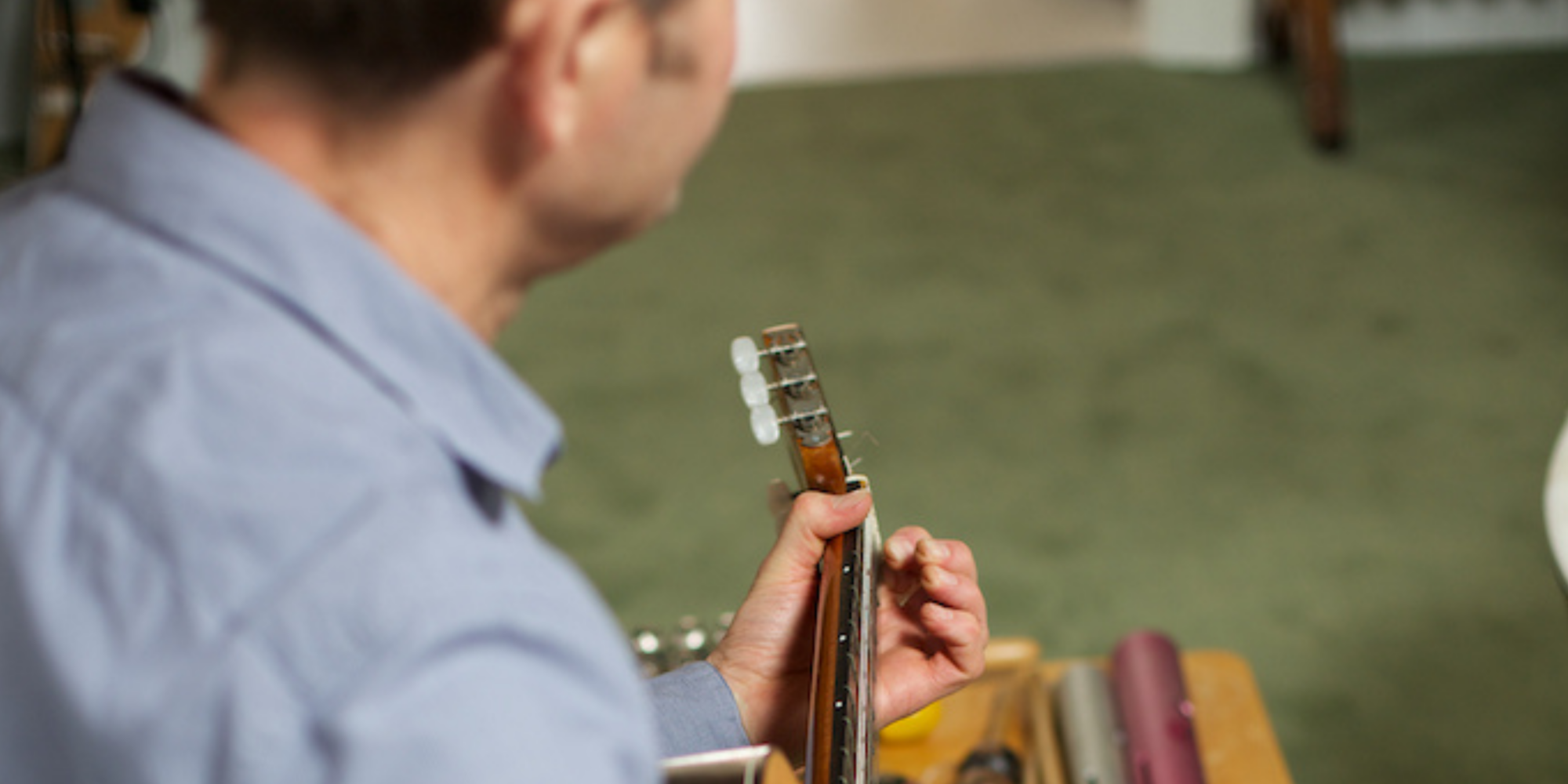At Rowcroft we recognise the profound impact that music can have on our patients and their loved ones. Music is powerful because it transcends barriers, touches souls, keeps us connected with our feelings, and fulfils physical, emotional, and spiritual needs. In this blog, Rowcroft’s Music Therapist David Holmes shares how he supports patients and their loved ones to improve their sense of well-being by channelling expression through music when it’s impossible to put thoughts and feelings into words.
Being heard through music
“Music can help people to connect with their own feelings and with other people,” says David. “It’s particularly important for people who struggle to express themselves. At end of life, there are so many feelings and emotions that simply can’t be put into words. Music can help with this, as the immediate experience of making a sound can give you a voice. The role of the music therapist is to connect with someone through music, and help them be heard through their music.”
Everyone can make music
“The first precept of music therapy is that you don’t have to have any musical skill or experience to participate. It’s about using music as a universal tool and it doesn’t require any musicality. Anyone can pick up one of our instruments and play it. Music therapy is about improvisation and spontaneity, and an immediate connection with instruments and making sounds. There’s no pressure; this is a new world of music where people lead and create their own experience, feeling their own way and exploring for themselves. As the music therapist, I build a musical dialogue with the patient, so that we improvise together to develop a relationship through our music. In this way, my patients can be heard through their music, and they can express themselves in ways that aren’t possible through speech. It’s a unique kind of interchange and a way of relating to others.”

A musical ‘conversation’
“Music therapy is so powerful. It can be a place for gaining an insight into the struggle that people are facing. Through music, patients can explore what’s going on in their lives, and how they’re coping. Music therapy can be particularly beneficial for people who are physically unable to speak, for example, patients with advanced motor neurone disease. Through the music therapy, we can hold a conversation in our music where patients might express their fear of their situation and what the future holds. They can explore their feelings, and how they’re coping day-to-day. We can record the music and listen back, so that they can gain another perspective on what is happening in their lives.”
Expressing feelings
“There are a range of feelings that are expressed through music therapy. Some people get behind the drums and they want to let out some anger, but the majority of the music that is created is very calm and soothing. Having said that, it may also contain tones of underlying anxiety. Many patients haven’t got the energy to express strong feelings; instead their music may evoke a sense of wandering in the darkness, or a feeling of being lost.”
A place of mindfulness
“Patients and loved ones may be overwhelmed by what’s going on in their lives, and their heads may be full of anxiety and ruminating thoughts. By creating and listening to music, they’re taken to a place of mindfulness – a safe space to stop worrying for a short time and to lose themselves completely in the music. They can empty their minds and get totally absorbed by the sounds. People often tell me, ‘It’s the first time I’ve stopped thinking for months.’
“As well as providing music therapy in our music hut and in people’s own homes, I’m often asked to play the guitar for patients in the Inpatient Unit, and to sing to them. Many people hold dear songs that have accompanied them through their lives and have significant meaning to them. Singing these songs at the bedside with a patient or with the family can create a powerful moment of connection.”
Promoting well-being
“When someone is very ill, it can generate a lot of tension in the family with everyone feeling as if they’re walking on eggshells. There is often a vital need to be soothed when everything is so fraught and full of anxiety, so I’m often asked to play gentle, soothing music for patients. For this, I often play the sounding bowl. It’s a locally made wooden instrument that’s perfect for helping people to relax, as it creates a gentle musical landscape and drifting meditative sounds. As patients engage with music, they often experience reduced anxiety, enhanced relaxation, and a release of tension within their bodies. The soothing melodies and harmonies can create a serene atmosphere that promotes overall well-being and can help in managing symptoms.”
Find out more about Rowcroft’s music therapy

